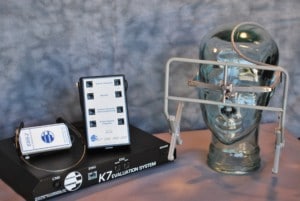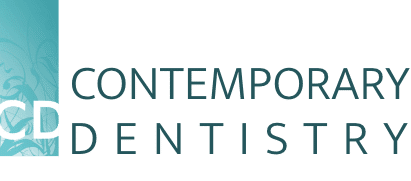A headache comes in many different types such as tension headaches and migraines, and it can be hard to track down the exact cause. That’s why many people suffer with them for years, often trying many different treatments with little success. What most don’t know is that TMJ might be to blame for their headaches. If you get regular headaches that are associated with other TMJ symptoms, it’s likely that TMJ treatment can help reduce or eliminate your headaches.
To learn whether TMJ treatment can improve your headaches in Rochester, please call (585) 244-3337 or email us for an appointment with a TMJ dentist at Contemporary Dentistry today.

Neuromuscular Dentistry
Neuromuscular dentistry is an approach to treating your jaw system as an integrated whole. It overlaps with holistic dentistry, although the disciplines have very different histories and involve different techniques. Neuromuscular dentistry focuses on the crucial role muscles play in the healthy function of the jaw. By helping the jaw muscles achieve harmonious function, neuromuscular dentistry can resolve TMJ symptoms, such as headache as well as:
- Jaw pain
- Earaches
- Ringing in the ears (tinnitus)
- Vertigo
- Tooth wear
- Neck pain
- Back pain
- Tingling and number in fingers

Neuromuscular dentistry treatment of TMJ begins with a scientific diagnosis. We utilize advanced scientific equipment such as the K-7 diagnostic suite to measure the health and function of the jaw. As part of diagnosis, we will typically relax jaw muscles using TENS (transcutaneous electrical nerve stimulation), which stimulates muscles to massage themselves. Sometimes this relaxing treatment is all that’s necessary to resolve symptoms. Other times, we might recommend the use of a bite splint to help your jaw maintain a healthy, comfortable position. Once we’ve found the optimal position for your jaw, we can talk about long-term treatment options that can maintain your treatment results without using the splint.
Tension Headaches and TMJ
Tension headaches are the most common type, accounting for more than 80% of all headaches. A tension headache is caused by muscle tension in the head.
Well, did you know that the largest and most powerful muscles in the head are the chewing muscles? These powerful jaw muscles are designed to do the hard work of chewing, but when your jaw can’t get into a comfortable position because your teeth won’t fit together properly, tension can build up in the jaw, causing them to get sore. This might manifest as jaw pain, but you might also feel this as a headache. Since the temporal muscles attach to the sides and behind the eyes, they can cause a headache.
But your jaw muscles also partner with other muscles in the head, and when they get tired and sore, they call on the help of these other muscles, which can get tired and sore, causing tension headaches elsewhere in the head, even at the base of the neck.
Migraine Headaches and TMJ
Migraines remain somewhat mysterious: we’re not entirely sure about what causes them. However, we have learned that the trigeminal nerve plays an important role in triggering migraines.
The trigeminal nerve is the main nerve for the facial region. It brings commands to facial muscles, and brings pain signals back from the facial region. When it gets overstimulated, it can send signals to the brain that trigger the release of compounds that lead to the swelling of blood vessels in the brain. When these blood vessels swell, they put pressure on the brain itself, leading to pain.
TMJ can trigger migraines by overstimulating the trigeminal nerve. With overactive jaw muscles, the trigeminal nerve might become overwhelmed. But in many places, branches of the trigeminal nerve weave under the jaw muscles. When these muscles are overactive, they can put pressure on the branches of the trigeminal nerve, triggering a migraine.
Referred Pain Headaches and TMJ
Another type of headache that can be triggered by TMJ is a referred pain headache. It’s caused when pain in one part of the body is interpreted as being in another part by the brain. This is why people with heart attacks might feel pain in their arm or jaw, or people with gall bladder problems sometimes feel it in their shoulder.
In the same way, jaw pain might be felt in your head as a headache.
Are They Related to TMJ?
So how do you know whether your headaches are related to TMJ? Here are a few hints:
- You have other TMJ symptoms
- They recur after instances of jaw activity (such as eating, talking, or clenching)
- You don’t respond to headache remedies directed at other causes
If you suspect your headaches might be related to TMJ, you should talk to a Rochester TMJ dentist. Please call (585) 244-3337 or contact us online for an appointment at Contemporary Dentistry.
